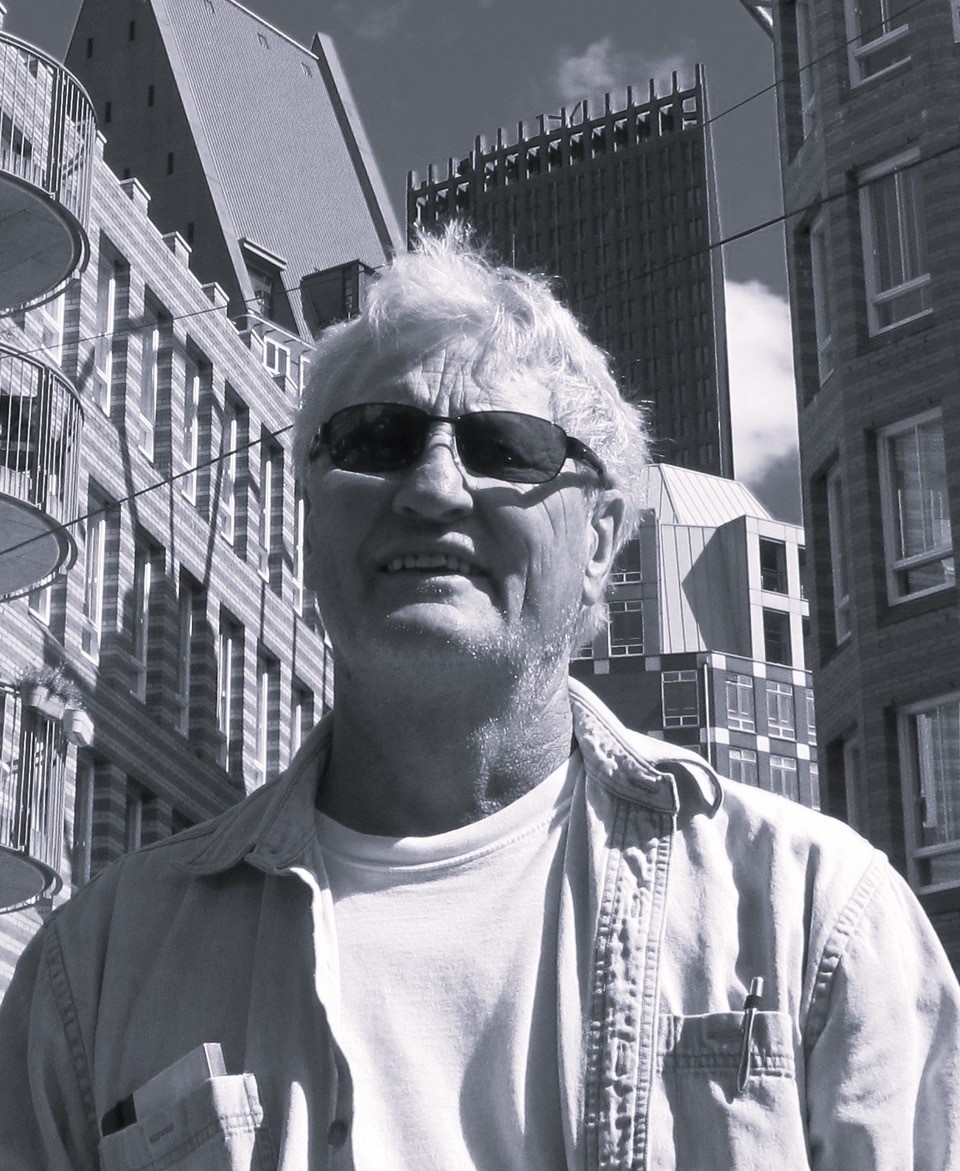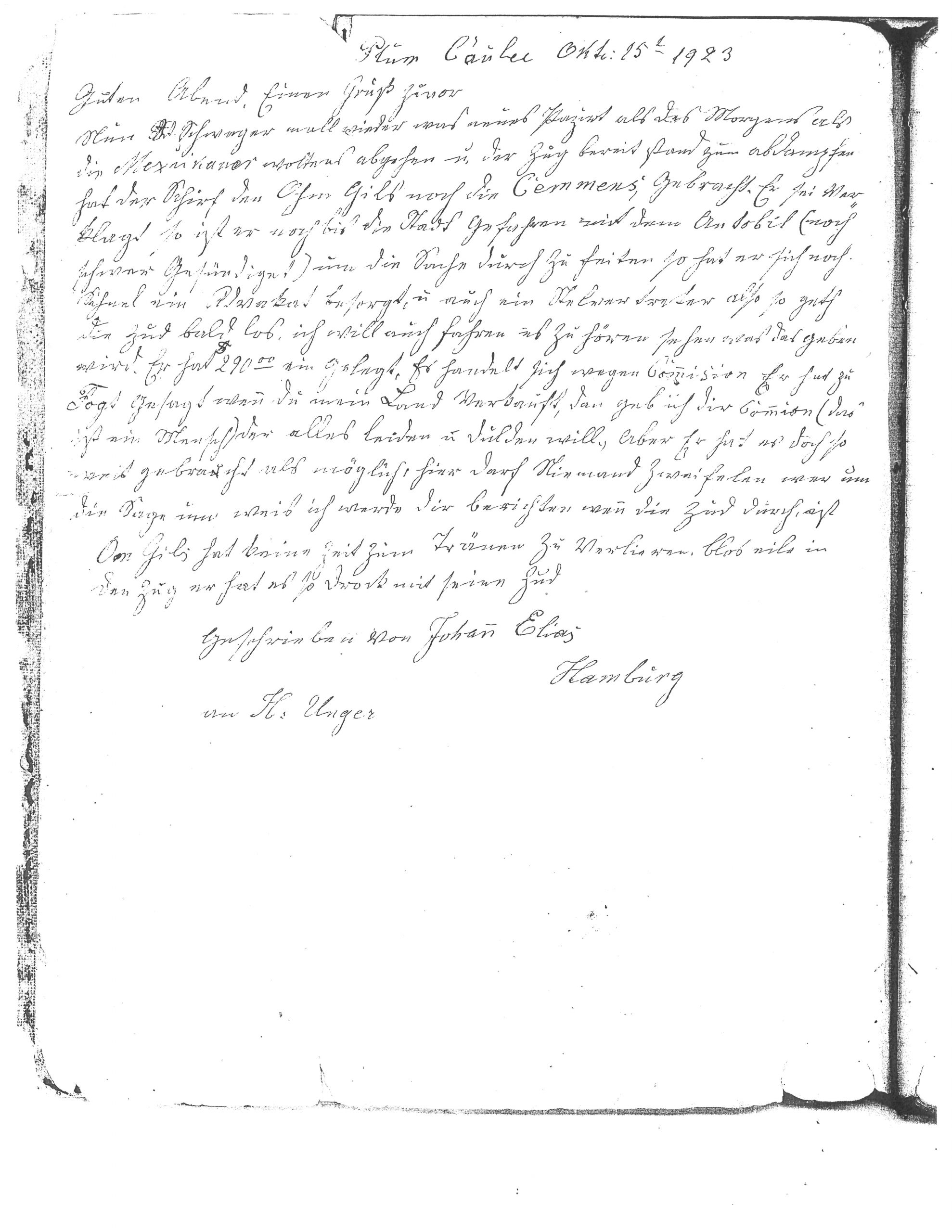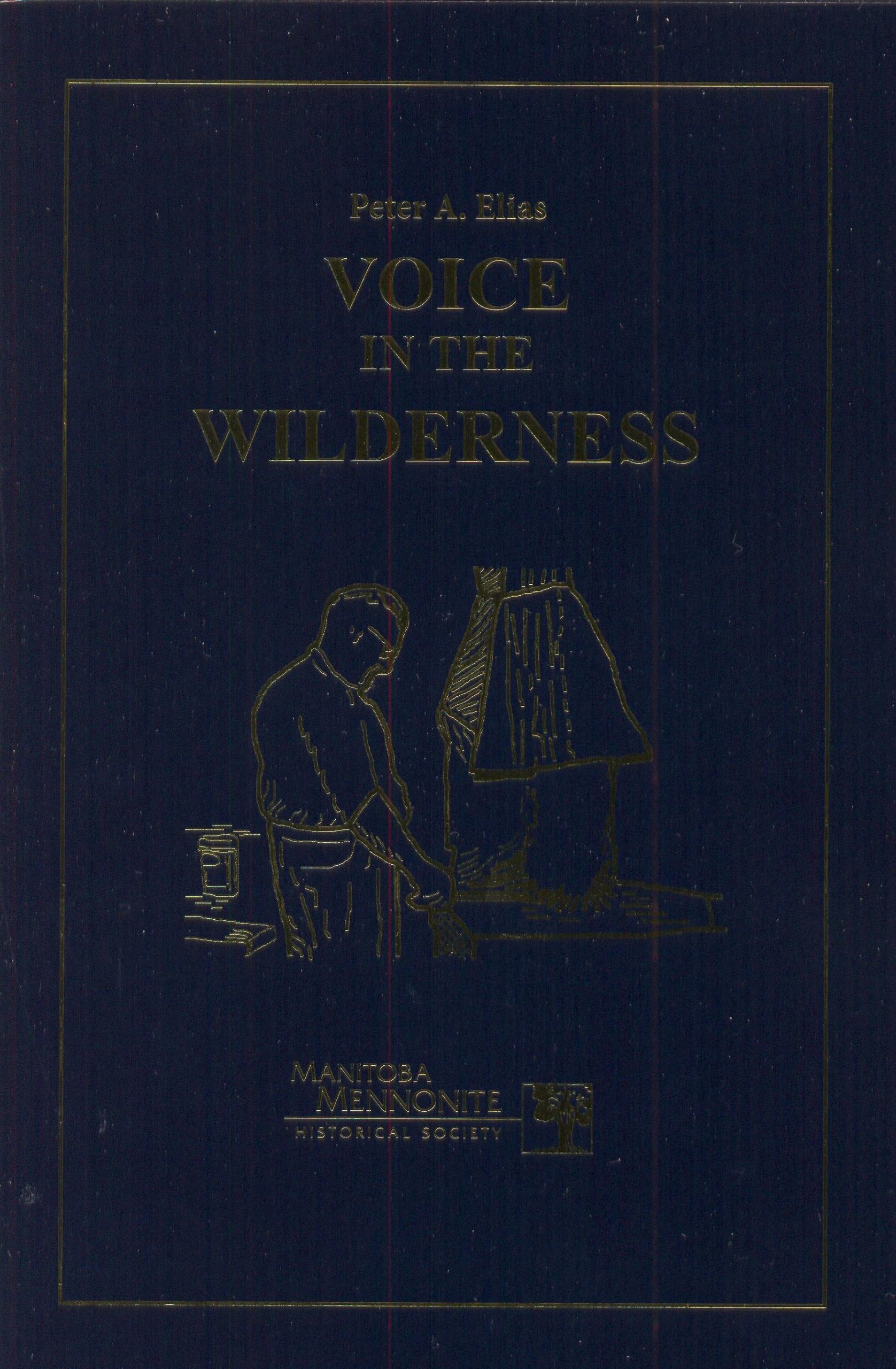Tales from the Mennonite Heritage Archives: Episode 36
Show Transcript
[Music]
Hello good listeners and welcome to
Tales from the Menanite Heritage
Archives, a show about people, places,
and events from Menanite history. I’m
your host Dan Dick. Thanks for tuning
in. On the seventh day,
he rested
with a kind of fury, a ferocious,
fleeting nap before Fospa.
But on Monday, God said, “Let there be
work.” And there was work, a hell of a
lot of, “Thy work be done.” On earth as
it is in heaven will not be a place of
rest if God turns out to be a minite.
Give us our daily chores. Forgive us not
our sloth. Lead us not into relaxation,
but deliver us from idleness. for ours
is the grunt, the heave, and the hoe.
Until next Sunday anyway. Amen. That was
author David Elias reading his poem
entitled On the Seventh Day. I’ve
invited David to talk with me about an
eclectic mix of subjects that includes
his book, The Truth About the Barn, and
prolific writer and recordkeeper of
early pioneer, Peter A. Elias, and more.
Hi, David. Good morning. You were born
and raised in Winkler, Manitoba, and
studied philosophy and English at the
University of Manitoba. What else should
our listeners know about you and your
work? For the last number of years, I’ve
been writing full-time. Uh, but before
that, I was also an educator and uh
taught uh right through elementary
through into high school uh grade 12 uh
creative writing course that I
developed. And so kind of had
two careers in a way, both of which I’m,
you know, I’ve been quite pleased with.
I’m curious to know what prompted you to
write the poem you read at the opening
of this episode. you know, my upbringing
um from about the age of 11 or so when I
had developed enough muscle mass to be
of use
uh on the farm
was one of a great deal of physical
labor of a lot of grain shoveling and
fence post head, you know, digging and
just a tremendous amount of uh of
physical toil And so this whole idea of
the work ethic that is the the theme of
the poem is something that um is is I
think it is tied in with the religious
uh aspect of being a Menanite. I think
the two kind of go hand in hand. Is it a
stereotype? Well, yeah, of course it is
as all are, but certainly a lot of truth
behind it too. Yeah. Your book, The
Truth About the Barn, is partly a vast
collection of fascinating facts about
barns and all that surrounds them, and
partly memoir. I was particularly struck
by the stories about your father, whom
you describe as an ideas man who often
left you and your siblings in the
implementation side of those big ideas.
Looking back, how would you describe his
impact on your life and did he have any
influence on your decision to pursue
writing? Well, as far as his influence,
uh I would probably classify it as uh uh
somewhere between monumental and
catastrophic.
Um he was a force
to be reckoned with
and so that
was a part of my life you know all
growing up through my growing up years
all through my much of my adult years.
Um,
so
the best way I could probably put it is
that I can never decide whether I became
a writer because of my father or in
spite of my father. And I think probably
it would been a combination of both.
Your great-grandfather’s brother, Peter
A. Elias, was a prolific writer who
arrived on Manitoba soil circa 1875 on
what we know as the West Reserve.
Some of his letters, stories, and
memoirs have been translated and
compiled into a book called Voice in the
Wilderness.
I’ve read numerous historical accounts
by Menite writers. This one stands out
to me as being extraordinarily honest,
detailed, and explicit. Peter seems to
be in a constant state of conflict and
turmoil with church leaders. He points
out hypocrisies and he writes at length
in his own defense. He recently spoke
about Peter and his writings at a
conference. What is your take on his
life and his stories? I had not known
about his work
until I was um over at the archives just
down the hall here
um looking uh into some genealogy of my
own family.
Happened to be browsing uh the shelves
there and um as you may know they they
have produced a series of books. They’re
all the the same.
They’re all gold embossed with a black
cover and they all deal with some
element or aspect of Menanite life
history, etc. Menanite Historical Society
books. Yeah. Yeah. And so they had taken
Peter’s journals, translated them,
painstakingly done a lot of work and
produced this book of which I had no
knowledge whatsoever. Thought these are
interesting looking books. I looked at
one of them on the shelf and it said the
voice in the wilderness and the I said
the author is Peter Peter a Elias Peter
A Elias. Hm. We had a Peter Elias and so
on and my brain started going and I I
thought I don’t really know who this is.
I never heard of I never heard of any of
this. I there were never any journals.
Still, I mean, I I I took it off the
shelf and I paged through it and and
there on on on page 36 was a picture of
what looked like my great-grandfather.
And the caption below, sure enough,
Gardias,
born 1852, died 1952, brother of Peter
A. Elias. Well, that was quite a
revelation
to see my great-grandfather’s picture in
a book. Um and uh had you ever seen that
picture before? I had not seen that
picture before. Uh it was really I find
it a bit bit haunting almost that
picture. He seems to be looking at me
and he’s conveying some sort. I don’t
know what he’s thinking but he’s there’s
something going on there you know. I
mean this is just me projecting of
course but um I would certainly like to
um to meet him and and know him. I was
three years old when he died.
And um that that immediately got me
going as far as I’m going to read this
book and find out what’s going on here
and then discovered that he was, you
know, uh the younger brother of of Peter
and um and I knew that I I wanted to
read it and find out as much as I could.
There’s precious little in there about
Ghart
and there’s precious little about him
anywhere. uh I have found a few bits and
pieces here and there but um that was
the impetus for um
for uh getting to know the book uh
better and then for the the paper that I
gave which was um uh the theme which
which the theme was okay Peter Elias his
work I didn’t know there was somebody
who sort of came before me I thought I
was writing out of a literary vacuum
familywise
uh turned out I wasn’t there there was a
writer before me, you know, so that was
a big deal for me. Yeah, big deal.
What went through your head when you’re in
that book? It’s full of stories.
Well, you know, I I I I laughed at in
parts, you know, when he was talking
about um what the transgressions he
considered banworthy.
Uh that that I got a big kick out of
that. the bicycles really got me um when
he explained in great detail how it uh
how the the inner workings of what would
happen if a person should find
themselves in possession of a bicycle
you know um inadvertent to me he wasn’t
in that trying to be funny at all but I
thought he was is very funny uh I don’t
think he really in that book makes an
attempt at humor consciously
seemed to be pretty serious man I found
the uh the way that he would quote
scripture where he would often draw it
like a gun kind of you know to use an un
a metaphor he would not probably not
appreciate. Theologians I think the term
is the theologians use proof texting
well he I think he sometimes felt he had
to defend himself and then there were
other times where he felt like he needed
to read some people the riot act kind of
you know and wasn’t afraid to do it. Um
cuz because he had these extremely rigid
views about what was and wasn’t okay in
terms of behavior and thought and
action, you know, which which which is
kind of a typical Elias trait. Um I say
that a bit tongue and cheek, but the
Eliases are can be a little bit
notorious for uh um
being once they get an idea in their
head, they they’re going to run with it.
Yeah. interesting. Yeah, he was very
religiously knowledgeable
uh very well read
um especially the Bible and and I sense
the throughout the many of the stories a
real power struggle between him as a lay
person and the church authorities and
lots of disagreement about uh uh being
strict enough or being too strict.
there’s there’s all that tension going
on constantly through much of many of
the stories and that is the kind of
contradiction that makes us have
something in common because
for me uh you know when I meet and talk
to people and they find out about my
background and they hear that I was not
a member of any church that I didn’t go
to church regularly and my family didn’t
um that I wouldn’t be really consider
myself um religious in that sense. And
yet uh I uh they say, “But but but
David, you you you know so much about
the Bible. You know the Bible so well.
You know scripture. You know what? Like
what what’s the deal?” And I’m like,
“Well, that’s not really a
contradiction. And you can know the
Bible well and study it and inval and
find great value in it
and yet not necessarily
uh be part of an institution where that
where that book is is is part of uh of
the experience. Those things are not
mutually exclusive. Yeah. You have
visited the Menite Heritage Archives
from time to time to research books
you’re working on or have worked on. Are
you working on anything right now that
will take you back to the ma?
Well, I’ve got a book coming out this
fall. It’s We’ve finally decided on a
title. It’s going to be called into the
dark,
but dark is spelled small dward
slash capital A R K
because in the book there is a man
uh Abew Weeb who is a former preacher
and he is building a massive
edifice in the middle of a field and
nobody knows Why? And when they visit
him, his basic response is to quote
chapter and verse from the book of Job.
What to you is the value of an archive
in terms of you being a writer? That’s a
great question because it is much more
than just the printed material that will
be placed in front of you. It isn’t so
much what you find. It it sometimes is
but sometimes it’s the process
and in that process you become
uh much closer to the character that you
are going to fictionalize
or write about just because of what you
went through and not so much of the
actual ar um archive that you that you
gain access to. Yeah. Thanks so much for
a wonderful conversation, David, and
best wishes to you on your future
writing projects. Well, thank you. I’ve
enjoyed it. Thanks for having me. David
Elias has written about a halfozen
books, which you can find wherever fine
books are sold. To see photos related to
this episode, visit mharchchives.ca.
As always, we’re happy to receive your
comments and questions about this
program via email to info@
mharchchives.ca.
Hello, I’m Conrad Stace, the archavist
at the Midnight Heritage Archives. Your
donations help preserve and share
stories like the one you just heard. To
send a gift, visit our website at
mharchchives.ca
and click on support or give us a call
at 204-560198.
Thanks also to our partners, Canadian
Midnight University, the Center for
Transnational Menite Studies, Midnight
Church Canada, and Golden West Radio. In
an upcoming episode, I’ll talk with
Graeme Unra, the friendly face and voice
behind the desk and phone at the MHA.
Before Graeme returns to university this
fall, I want to pick his brain about the
people and stories he’s encountered in
his work. Thanks to the Tales team of
Conrad Dace and Graeme Unra for their
work on the program. And for the last
time, thanks to Kaylee Dick, who leaves
Tales to pursue new work. I’m your host
Dan Dick. Tales from the Menanite
Heritage Archives will be back soon with
more stories about people, places, and
events from Menanite history. Thanks for
listening.
[Music]
Host Dan Dyck sits down with author David Elias. David discusses ancestor and noted Mennonite diarist Peter A. Elias, growing up in rural Manitoba, and his upcoming book Into the d/Ark.
Peter wrote extensively and honestly about pioneering in Manitoba, and his personal struggles with the church after arriving in Canada in the early 1870s.
This interview was recorded while David was on the Canadian Mennonite University campus for Mennonite Writer/s Ten, a conference on Mennonite writing that took place in June, 2025.
Your donations help preserve and share stories like this one! Make a gift here or call 204.560.1998.
Podcast Series: Tales from the Mennonite Heritage Archives
Episode 36: A Conversation with Author David Elias
Date: July 6, 2025
Host: Dan Dyck
Special guests: David Elias
Published by The Mennonite Heritage Archives
Subscribe on Apple Podcasts, Spotify, Youtube, or wherever you get your podcasts!



